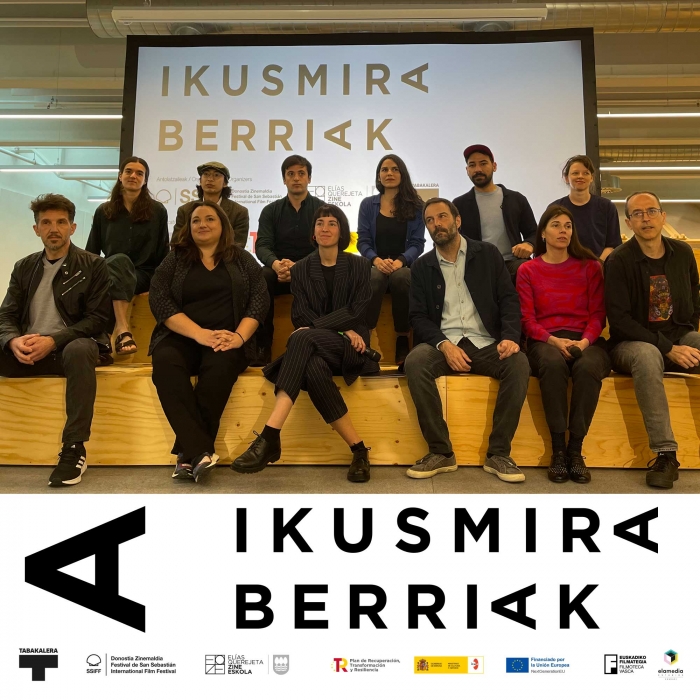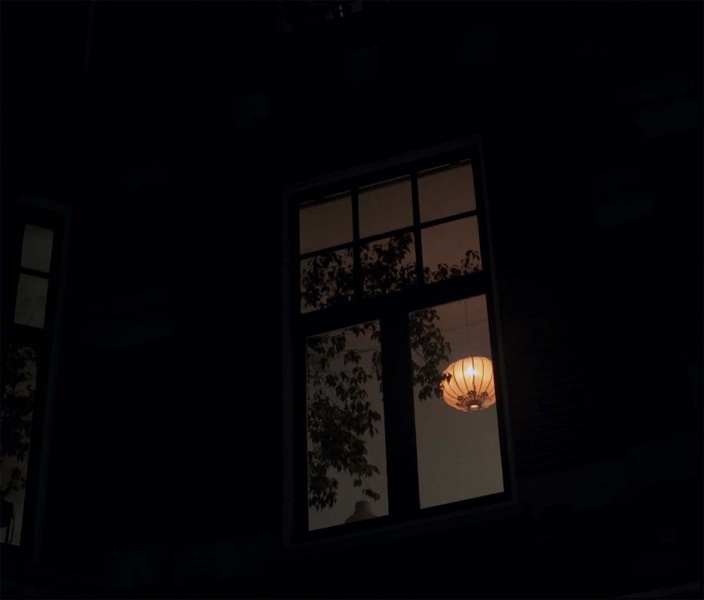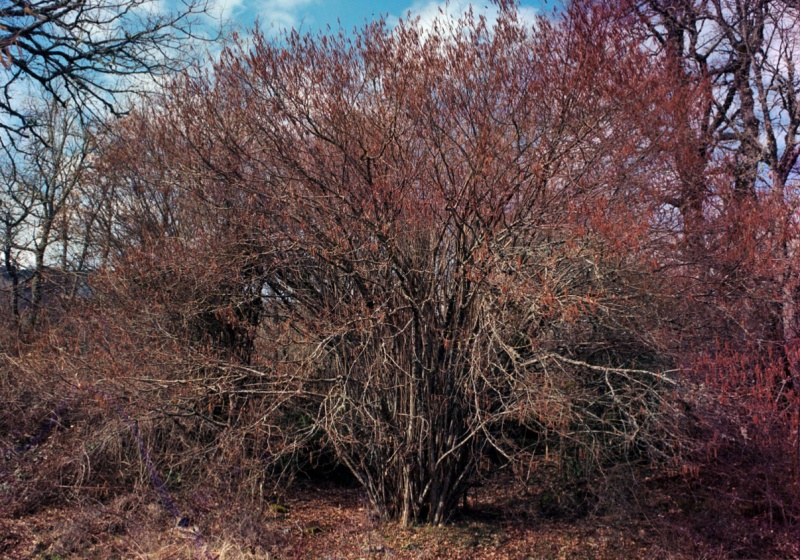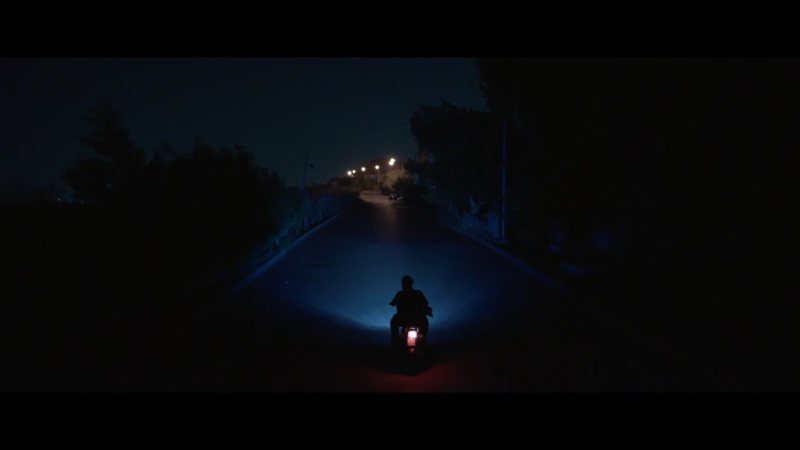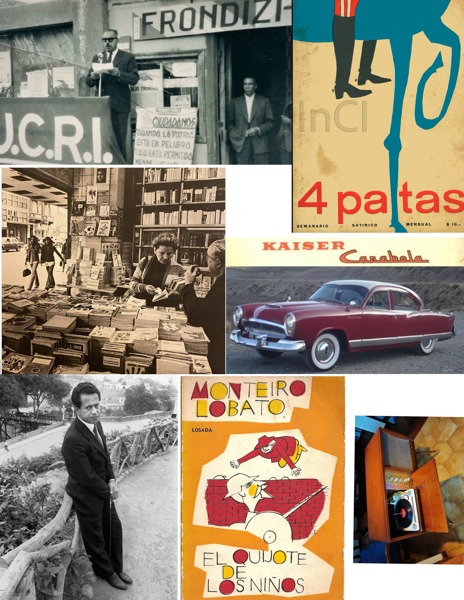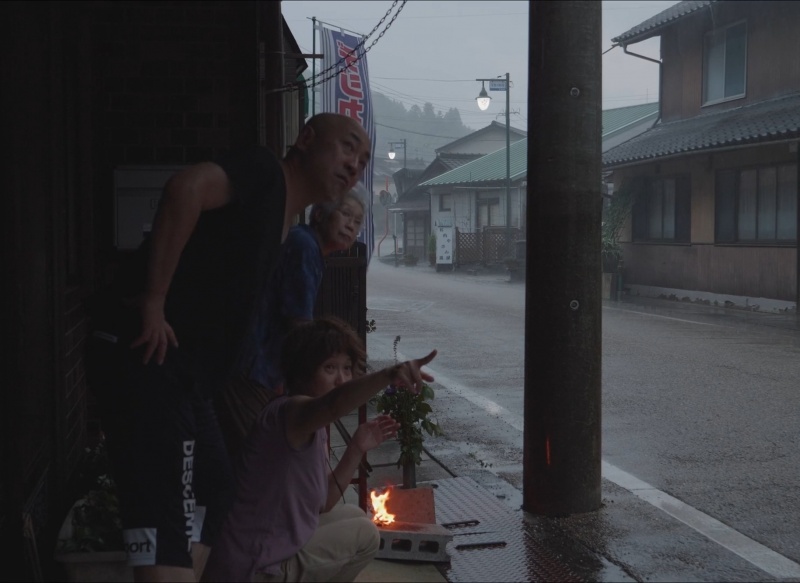Filmmakers Sameh Alaa, María Alché, Maddi Barber, Naomi Pacifique, David Pérez Sañudo and Hikaru Uwagawa are now settled, since 6th March, in the Artists’ Space of Tabakalera international centre for contemporary culture, in San Sebastian, where they will complete their stay as part of Ikusmira Berriak, the residencies programme for the development of audiovisual projects organised by the San Sebastian Festival, Tabakalera and the Elías Querejeta Zine Eskola (EQZE).
This week the residents met the members of the Ikusmira Berriak experts committee: the moviemaker Sergio Oksman, the consultant Olimpia Pont Cháfer and the consultant and member of the San Sebastian Festival selection committee, Javier Martín. Ikusmira Berriak also comes with another particular feature whereby the programme hand picks professionals to tutor the selected projects taking account of the filmmakers’ needs and requests.

Hence, this year, the Spanish filmmaker Elena López Riera, whose debut movie, El agua / The Water (2022), was also developed at Ikusmira Berriak before its selection for the Cannes Quinzaine des Réalisateurs, will accompany Naomi Pacifique and her project questioning monogamy from the streets of Amsterdam (after the night, the night). The Portuguese moviemaker and producer Catarina Vasconcelos, director of A Metamorfose dos Pássaros / The Metamorphosis of Birds (2020), winner of the Fipresci Prize in Berlin and of the Zabaltegi-Tabakalera Award, will do the same with Maddi Barber and Claros de bosque / Forest Clearing, a story weaving a connection between a woman, a man and three cockerels in the Pyrenees of Navarre and which began taking shape in the Noka Mentoring 2021 programme promoted by the Basque Government and Tabakalera. The French filmmaker Damien Manivel, winner of the best director accolade at Locarno and of a Zabaltegi-Tabakalera special mention for Les enfants d’Isadora / Isadora's Children (2019), will tutor the graduate from the fourth year of students at the Elías Querejeta Zine Eskola Hikaru Uwagawa and his Japanese take on Homer’s The Odyssey and the concept of home (Ulysses). The Argentinian producer Laura Citarella, acclaimed director of Trenque Lauquen (Venice, Zabaltegi-Tabakalera, Mar del Plata), will accompany David Pérez Sañudo as he follows a thirty-year-old on his return to Italy (La última noche de un Erasmus en Roma / An Erasmus Student's Last Night in Rome). Georgian filmmaker Alexandre Koberidze, awarded at Berlin, Mar del Plata and Tokyo for Ras vkhedavt, rodesac cas vukurebt? / What Do We See When We Look At The Sky? (2021) will mentor Sameh Alaa in his exploration of a woman reacting to a repressive society (I Can Hear Your Voice... Still). Lastly, the Brazilian moviemaker Kleber Mendonça Filho, winner of the Cannes Jury Prize for Bacurau (2019), will tutor the Argentinean director María Alché in her work on an intimate melodrama set parallel to the events that marked the history of Argentina from the 40s to the 60s (Te amo y hoy todo es hermoso / I Love You and Everything is Beautiful).
As well as advice from the committee of experts and hand picked professionals for each project, the participants will enjoy an editing workshop given in person by Ariadna Ribas (Pacifiction, Suro) on 21 and 22 March, and the screenplay workshop, also given in person, by the consultant Anna Ciennik (30 and 31 March).
The six filmmakers will have time to work on developing their projects until 16 April. On the 8th, as part of the annual Zinemaldia + Plus spotlight, the Ikusmira Berriak residents will reveal some of their earlier works to the audience in the Tabakalera cinema. The Egyptian filmmaker Sameh Alaa, who now works on his first feature film in San Sebastian, will show his short film, winner of the Palm d’Or at the Festival de Cannes, I Am Afraid to Forget Your Face (2020). María Alché, recipient of the Horizontes Award at the San Sebastian Festival for her first film, Familia sumergida, will do the same with Noelia (2012), her first short film, winner of awards in Buenos Aires and at IndieLisboa. The Japanese moviemaker living in Madrid, Hikaru Uwagawa, will screen Ulises, Telémaco y Penélope, one of the pieces from his full-length project Ulysses, on which he is working at the residency. The Swiss-Dutch director Naomi Pacifique will present after the room (2021), which competed in Nest and won the Silver Pardino at Locarno, and which also provides the starting point for her feature-length project after the night, the night. The Basque director David Pérez Sañudo, whose debut, Ane / Ane is Missing (2020), competed in New Directors, winning the Irizar Basque Film Award and the Goya for best adapted screenplay, will show the short film La colcha y la madre (2021). The moviemaker from Navarre, Maddi Barber, will present her piece 592 metroz goiti / Above 592 Metres (2018), screened as part of the Zabaltegi-Tabakalera selection.
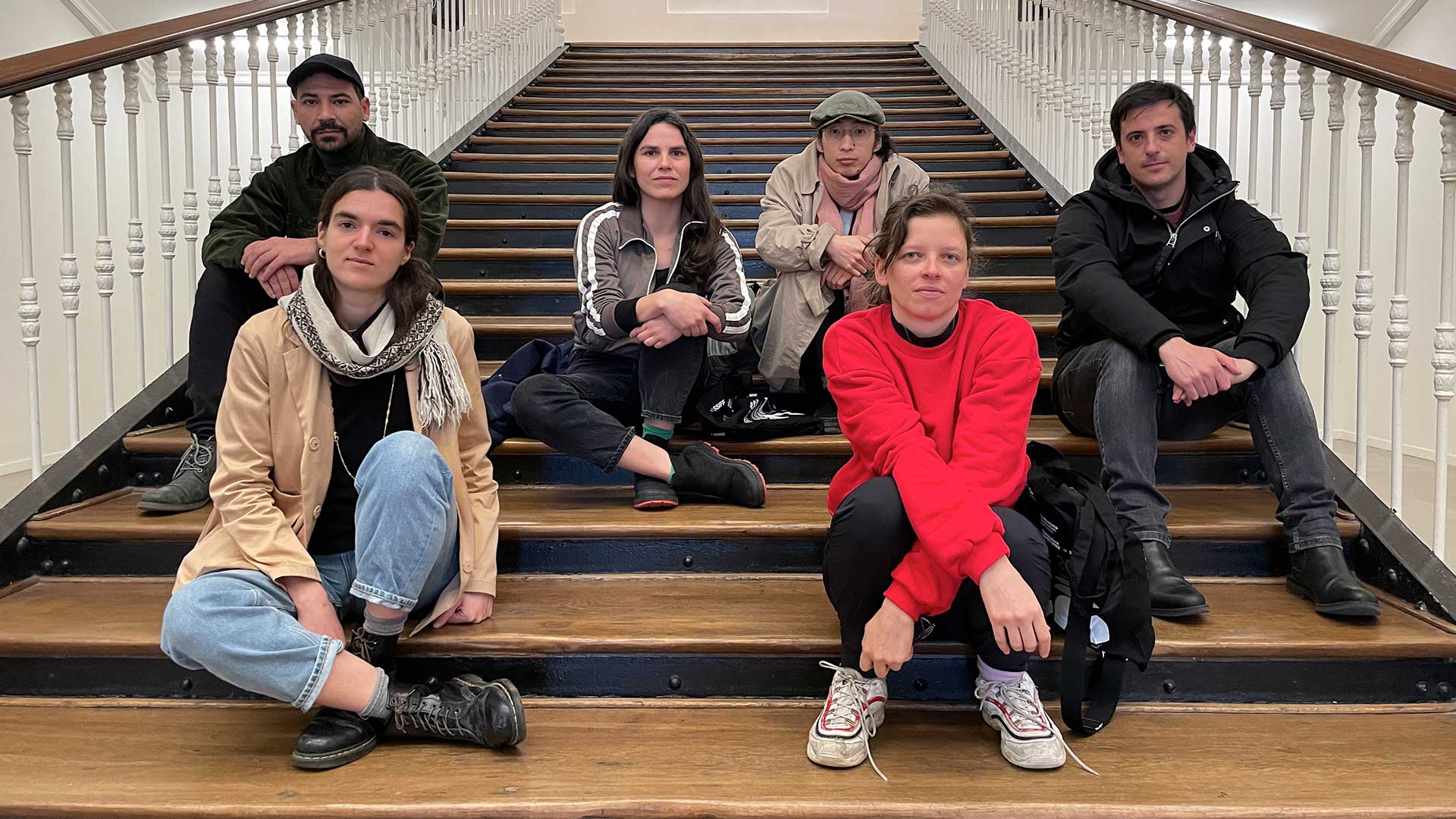
In June, each resident will receive a development grant of 10,000 euros to continue working on their project between the two periods of their stay. In September, coinciding with the dates of the Festival, they will return to San Sebastian to complete the two last weeks of the residency. During that stage they can present their project to industry professionals and will have a personalised agenda of meetings with people interested in participating in their projects. In addition, the company Elamedia Euskadi will give the Elamedia Post-production Award to one of the selected projects. The award consists of the sound and colour post-production, the graphic work and the obtaining of a DCP master.
The Ikusmira Berriak programme has received, for the years 2022 and 2023, grants for creation laboratories and the development of audiovisual projects launched by the Instituto de la Cinematografía y de las Artes Audiovisuales (ICAA) in the framework of the Recovery, Transformation and Resilience Plan (RTRP) to promote the audiovisual Sector. This plan is intended to strengthen laboratories, incubators, residencies, platforms and similar initiatives that share the aim of supporting projects at the writing and development stage, with a view to achieving greater quality in the productions and improved access to the market and the audience with optimum conditions to guarantee their circulation and profitability. Thanks to these grants, Ikusmira Berriak has doubled the financial amount going to the projects at the residency so each filmmaker will receive 10,000 euros to work on their proposal instead of the 5,000 euros delivered to date.
Consolidation of the programme and premieres in 2023
The consolidation enjoyed by the programme became obvious last year, when three projects developed at Ikusmira Berriak premiered at Cannes and San Sebastian. On the one hand, Elena López Riera presented El agua / The Water at the Quinzaine des Réalisateurs in Cannes, participated in Zabaltegi-Tabakalera and bagged the Violette d’Or Award at the CineEspaña Festival in Toulouse. On the other hand, Manuel Abramovich and Mikel Gurrea became the first Ikusmira Berriak moviemakers to compete in San Sebastian Festival’s Official Selection: with Pornomelancolía the former landed the Jury Grand Prix for best film at the Bordeaux Independent Film Festival, while the latter garnered awards including the Irizar Basque Film Award and the FIPRESCI Prize in San Sebastian for his film Suro. Likewise, in January Raven Jackson made her debut in the North American competition of the Sundance Festival with her first feature film, All Dirt Roads Taste of Salt (Ikusmira Berriak 2019).
Since its first edition in 2015, Ikusmira Berriak has supported the development of 38 audiovisual projects, 17 of which have been completed while the remainder are at the development stage. Ten of those now finished have won major awards at international festivals, such as 918 gau / 918 Nights (2021), by Arantza Santesteban, which won the Best Film Award in the Official Selection of the Torino Festival, the City of Lisbon Award for Best Film at DocLisboa and the Audience Award and a special mention at Punto de Vista in Navarre, as well as being programmed this year in the Zinemira section of the San Sebastian Festival. For his part, among other accolades, Kiro Russo won the Jury Special Prize in the Orizzonti section of the Venice Festival with El gran movimiento / The Great Movement (2021), also included in Zabaltegi-Tabakalera, while Helena Girón and Samuel Delgado bagged with Eles transportan a morte / They Carry Death (2021) the Award for Best Technical Contribution at the Venice Critics’ Week and a special mention in the Zabaltegi-Tabakalera Award.
In addition, several projects included in Ikusmira Berriak are now at the post-production stage and will be premiered in the coming months. This is the case of O corno do centeo / The Rye Horn, by Jaione Camborda; Antier noche / Nights Gone by, by Alberto Martín Menacho; Creatura, by Elena Martín Gimeno, and Dormen os peixes de olhos abertos / Do Fish Sleep with Their Eyes Open?, by Nele Wohlatz.
Tonight Naomi’s partner tells her he will return to monogamy with one of his recent relations. Confronted with the harsh reality of non-monogamy, Naomi heads out onto the streets of Amsterdam for a night of diverse intimacies, to remember why she committed to this kind of relationship in the first place. And while she looks, listens and talks her way through the city’s cobbled streets, is the night getting longer, or is it only the lights from people’s windows engaging in deep conversation with the moon?

Naomi Pacifique, director
It’s winter in a small valley in the Navarrese Pyrenees. Ana (39) lives alone and struggles to fit into a rural world to which she doesn’t belong and that she finds hostile; three roosters struggle to survive overnight in a forest after being abandoned; Julen (35) will try to reverse the effects of climate change in his town as he questions the values he has grown up with. Three stories tied in by a chain of random events create a tale about possible ways of life in a traditional rural setting.

Maddi Barber, director
In the ghost city of Cairo, just before midnight, Miriam leaves home at such a late hour for the first time in her life. Her night is full of manipulation and other physical and emotional obstacles as she finds her way in a patriarchal society. Overcoming them one by one, she faces her own limits, blurring the line between the real and the unreal.

Sameh Alaa, director
Marcos goes to Rome to collect the body of his brother, who died while on his Erasmus stay, and where he too had studied years back. There he learns that his brother Alejandro was a different person to the one he had known. Intrigued by this version of his brother, Marcos recreates his last days; he goes out with his friends, sleeps in his bed, smokes his tobacco… Meanwhile, the phone calls keep coming: his mother, his boss… “When are you coming back?” But Marcos is happy squatting his brother’s life.

David Pérez Sañudo, director
It’s summer 1952. Josefina (8) lives with her brother Jorge (13) and their mother, a geologist in the Andes Mountain Range. But a tragic accident leaves Josefina and Jorge orphaned and they are farmed out to Berta, one of their aunts, whose intense political and cultural life filters through to the children’s home and private lives. Soon Jorge feels uncomfortable and leaves. Josefina is left behind, living alone with her aunt, her husband and her two cousins. With a few narrative ellipses, personal life starts merging with the political, social and cultural life of the convulsive 50s and 60s.

María Alché, director
The film is a parody of Homer’s Odyssey in the style written by James Joyce in his novel Ulysses. Several Ulysses travel in search of their imaginary home (Ithaca), a place that no longer exists. Episode 3 (Hades) follows Kazuko (read Tiresias), a woman living in Okayama, who has lost her husband and is preparing for her first Obon, the yearly Japanese festivity when the spirits of ancestors return to this world to visit their family members. At the same time and in the same city, Ulysses meets Kazuko and, during the Obon, his dead father (read Anticlea).

Hikaru Uwagawa, director

Organizers

Funded by

Collaborators


